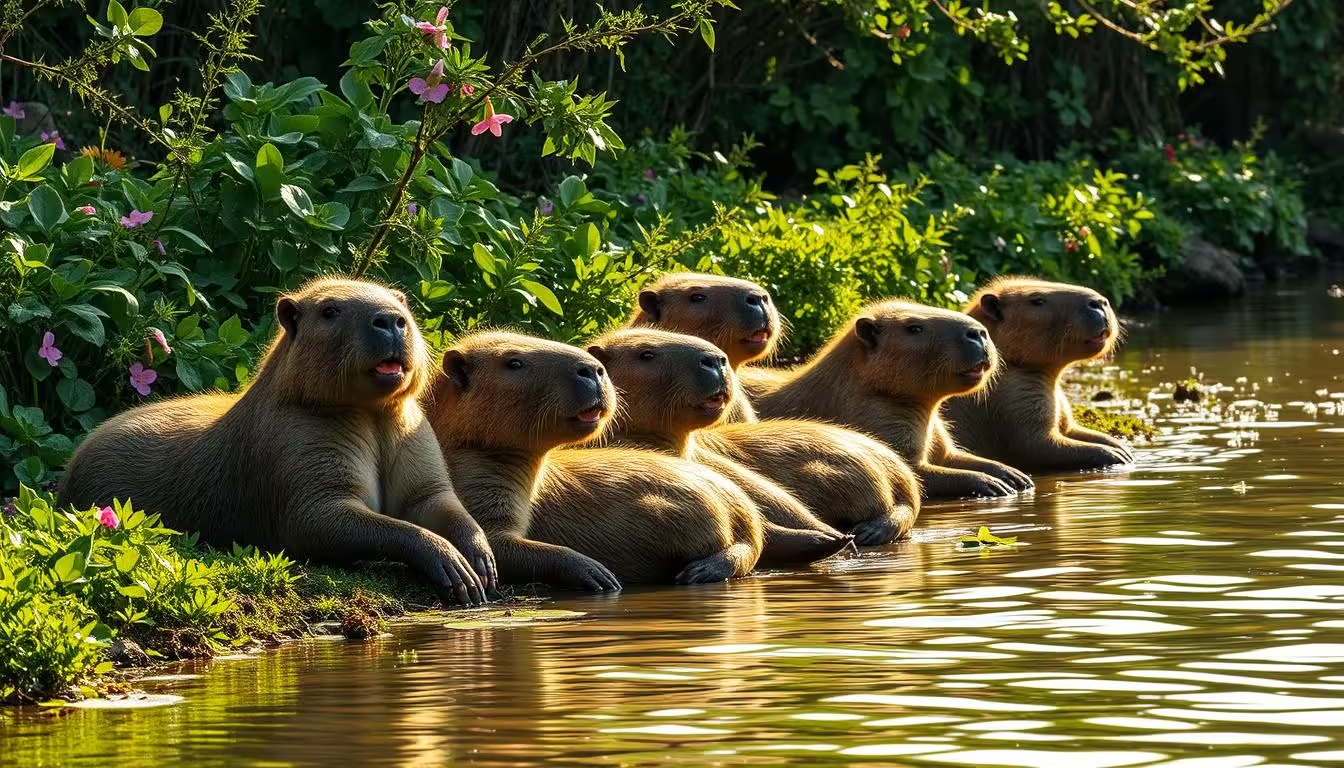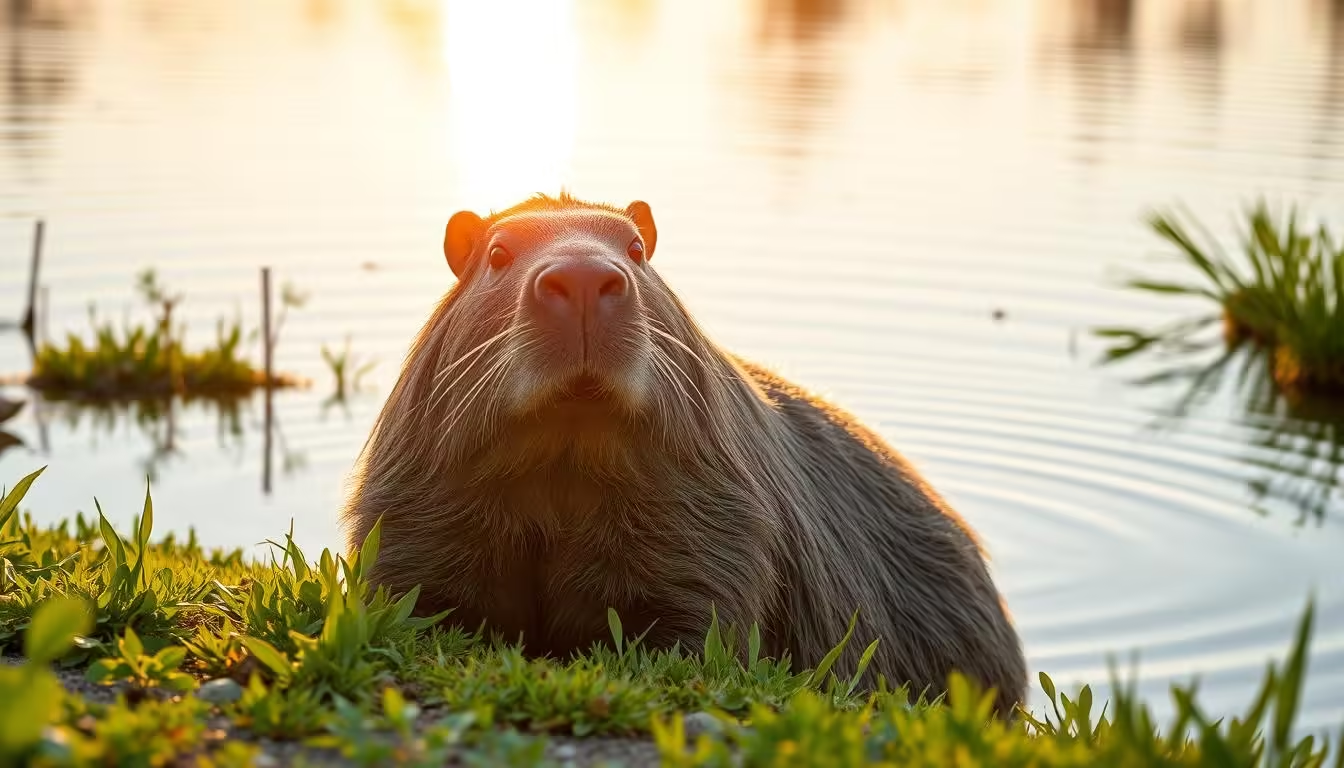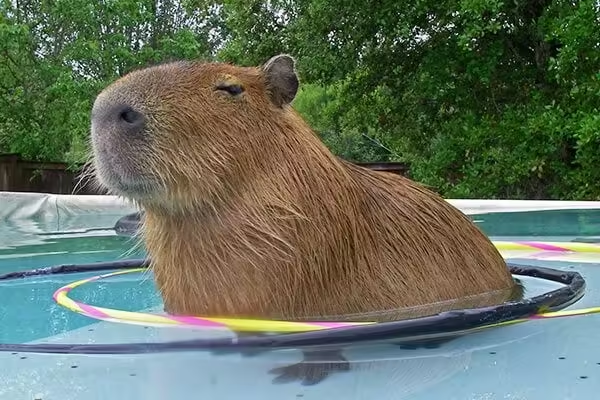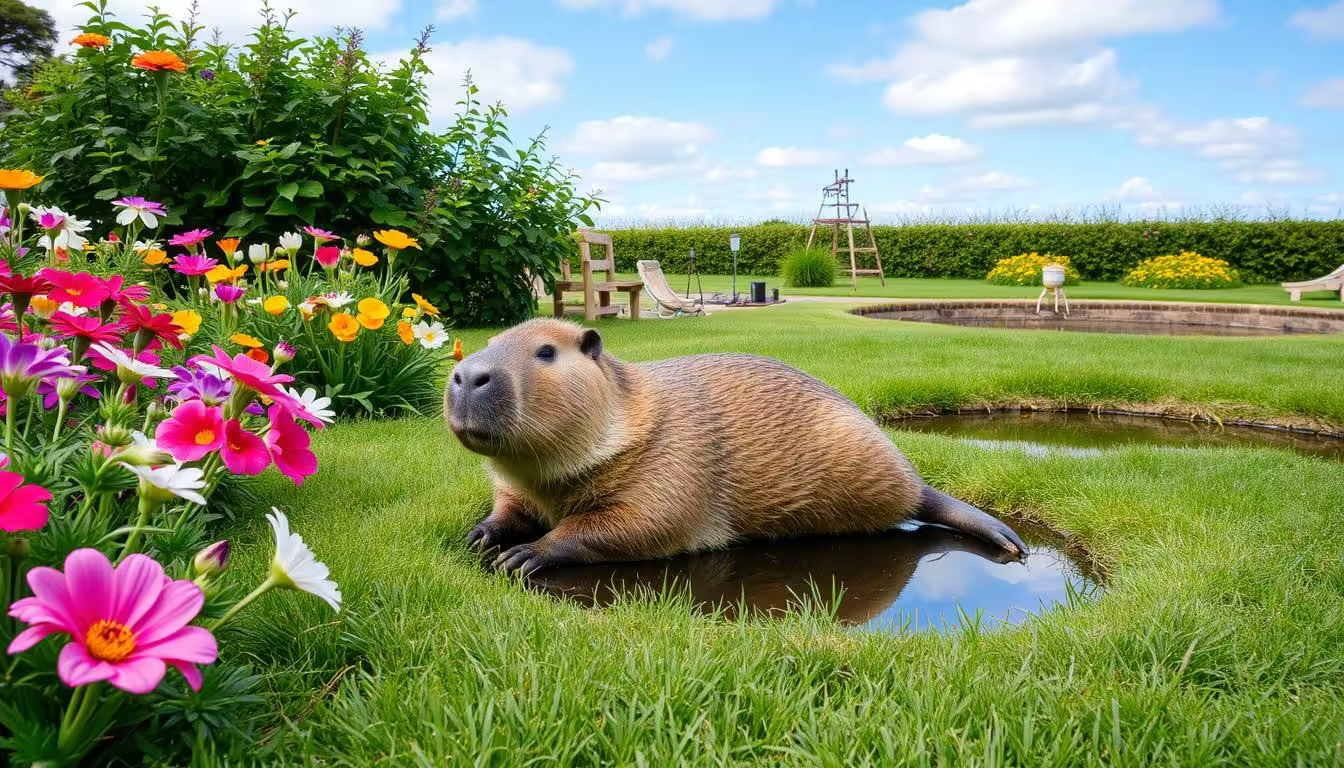Some Capybaras have lived much longer. This article explores the lives of the oldest capybaras, showing their remarkable ability to live long lives. Key Takeaways The oldest recorded capybara in captivity lived to be 15 years old at Adelaide Zoo in Australia. Capybaras can reach a top speed of 22 mph, making them as fast […]
Tag Archives: Capybara Lifespan
Capybaras can live three to ten times longer than their smaller cousins. This makes them very interesting to scientists and the public. The secrets to their long lives include their unique genetics and how they adapt to their environment. Their social structure also plays a big role. These factors help us understand why capybaras live […]
There are two types of capybaras, the greater and the lesser. People love learning about these amazing animals. They are known for their size and special ways of living. This makes them interesting to scientists and animal fans. Key Takeaways The maximum lifespan of capybaras is 8 to 10 years, but in the wild, they […]
Capybaras, these amazing animals have a lifespan that stands out among rodents. In the wild, they can live up to 8 to 10 years. But, the average capybara lives between 4 to 8 years because of predators. In captivity, capybaras can live longer. They can reach up to 12 years with the right care and […]
Key Takeaways Capybaras require specialized care due to their semi-aquatic nature and social behaviors. Proper habitat design, balanced nutrition, and social interaction are essential for increasing capybara lifespan. Aging capybaras have unique dietary needs and may require adjustments to their care routine. Regular health monitoring and preventative measures can help avoid common capybara health issues. […]
Capybaras often live in groups of 10 to 40. They are great swimmers, able to hold their breath for up to 5 minutes. They even coexist with predators like caimans, showing a unique relationship in their ecosystems. The International Union for Conservation of Nature (IUCN) says capybaras are not at risk. But, habitat loss and hunting […]






